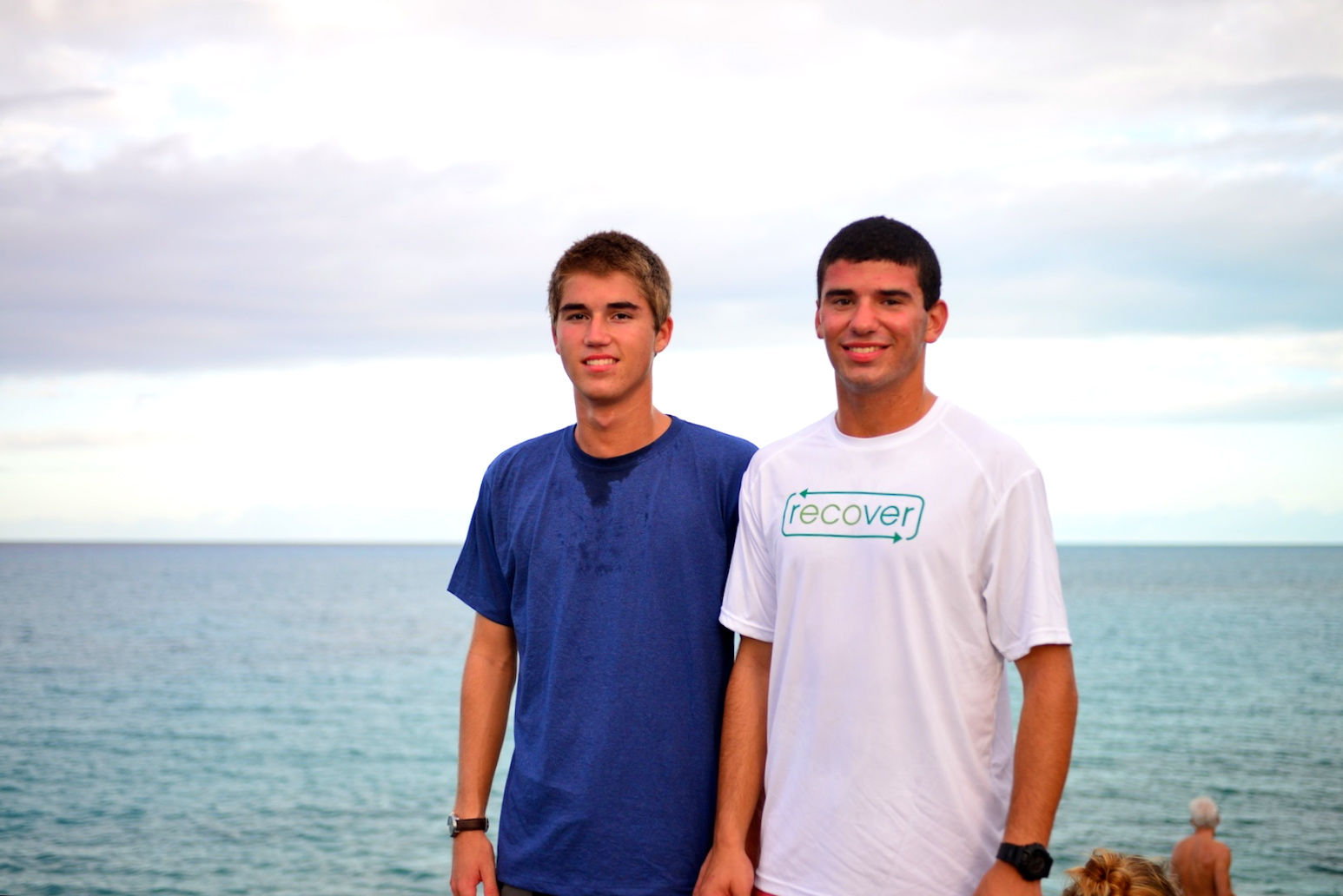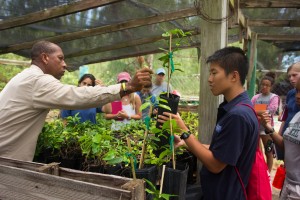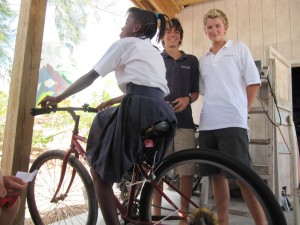This morning all 53 students headed off on their way. Congratulations Spring 2015! Here are some reflections from the final week.
Conch Fest
Last night proved the saying “the party don’t start ‘till we walk in.” Arriving at conch fest around 4:35 we were the first ones to occupy the fair ground in Deep Creek. After a day of pouring rain, the grassy area sloshed under our feet. We decided to walk up the street for a little bit of puppy TLC. There is a house behind the local drug store Jemmaks that is home to seven or so puppies who have provided much enjoyment to Island School students over the past couple weeks. By the time we all finished loving on the little bundles of fur, Mooch (the famous) had set up her booth.
The interesting albeit ironic thing about conch fest is that the Island School and CEI profess strongly that conch should be given up in favor of a more sustainable fishery. Because of this, CEI had a booth dedicated to promoting lionfish consumption. Lionfish are highly invasive in this area and are both sustainable and delicious. In addition, one of the Community Outreach projects that was presenting at the festival was Destinee’s trashion show. The show featured Deep Creek Middle School students, Island School students, and faculty alike. I have to say, I was highly impressed by what Destinee was able to create with chip bags and Caprisun pouches. We left the festival early to prepare for the half marathon the next day. What a way to end the semester: trashion, fried food, and exercise.
-Locke Curtis
Human Ecology: Energy Track
I grew up hearing all about grown ups and work and the “real world.” It has all seemed so far off; but it wasn’t until I was sitting in a conference room with four of my peers, blankly looking at this project before us, that I realized “real life” was staring me right in the face. The task was to design a renewable solar energy system for the new Anderson-Cabot graduate hall. This design had to consist of an energy audit, schematic, financial analysis, step-by-step guide to what would be produced and how, all thoroughly explained and justified in the format of a professional written proposal.
Group dynamics were rough; with so much to do and no idea where to start, heads were butting and emotions were running high. It took awhile to get our ideas off the ground. But the reason there was so much frustration was because we were all so passionate about the project and truly wanted to do the best job we could. With 3 5-hour class blocks, we spent a total of at least 18 hours, not even including the hours put in outside of class. I realized that simply sitting down and getting it done would not be a possibility. It was a long two weeks of a lot of mistakes, a lot of compromises, and a lot of disappointment. But thankfully, we ended up with more successes than failures. Deadline day came and we turned in a completed 24-page proposal, followed by a 5-minute pitch to our peers, faculty, and even the family who donated the money for the building. Hard work doesn’t even begin to describe what we did, and accomplished doesn’t even begin to describe how we feel now. It goes to show that we truly are capable of anything we set our minds to- just one example of many showing how The Island School pushes you to be your best, and to explore the endless potential we didn’t know we had.
-Madeline Parker
Plastics Summit
On Thursday night we went to bed, just the 52 students and few teachers that live on campus. After a good night’s sleep, we awoke on Friday to find that there were suddenly over a hundred people in line at the dining hall. This semester, Island School had the honor of hosting a large youth summit on the issue of plastics on the weekend of June 5, or World Environment Day. The guest list included a number of Bahamian schools, members of the United Nations, Celine Cousteau-Jacques Cousteau’s granddaughter, 5 Gyres, Bahamas Plastic Movement, the Bahamian Minister of Education, and a few other organizations and important individuals dedicated to reducing plastic use. Oh, and there was this guy named Jack Johnson, whoever he is. Friday morning started with presentations from the preeminent scientists and researchers in the field of plastics and went on the ceremony where Jack Johnson was officially named a goodwill ambassador for the United Nations Environmental Program. He went on to play a few songs…and wow. He sounded exactly like his recordings, and he did it all with a laid-back ease. The next event on Friday was the dedication of the new Anderson-Cabot Grad Hall, where Maxey, Aaron Schultz, and the Bahamian Minister of Education honored the Andersons and Giant, the architect of the actual grad hall. The grad hall will serve as housing for grad students, interns and researchers that come through CEI.
On Saturday, we had our culminating project for research, where we displayed all of our work in a way that would reach audiences from toddlers to scientists. My group presented our poster, but we also had a slideshow with photos and videos and we designed and constructed two games. Research has been incredibly fun, but it was a relief to finally be done with our projects.
Today, Sunday, the Plastics Summit came to an end with a bang. We all biked down to the marina for lunch, and were greeted by a local band called the Rum Runners. After we finished our meal, we got a special treat. Jack Johnson then performed for us, with the help of some of the crew of the Mystic, the ship he sailed in on, the Rum Runners, and even two Island School students (shoutout to Lily and Hal).
This whole weekend was pretty surreal. There were so many impressive individuals, from scientists to politicians to musicians to professional surfers (who just stopped by today to say hi and join Jack Johnson). I hope that this summit and the relationships that we built during this weekend will last on to further semesters.
-Douglas Vetter




